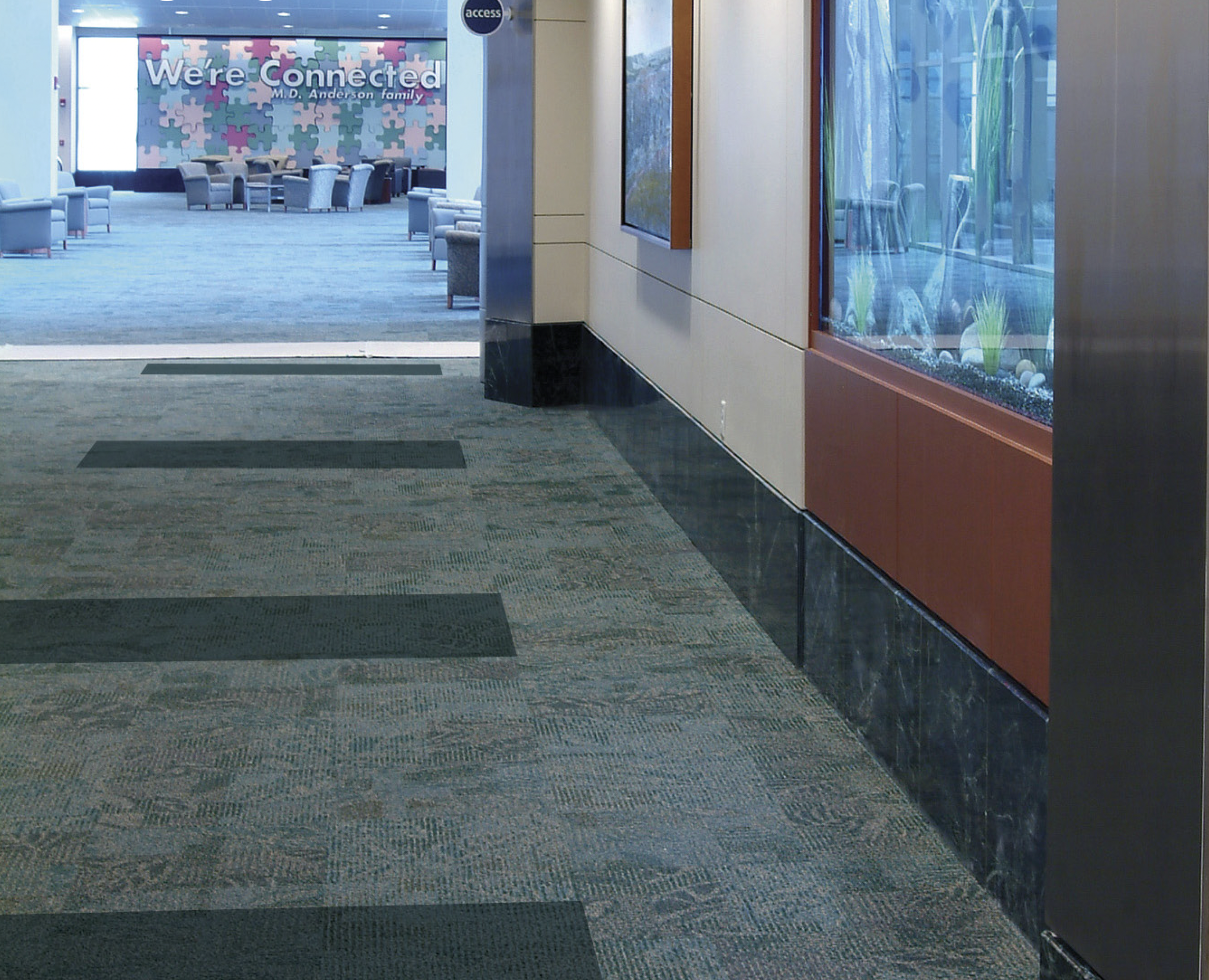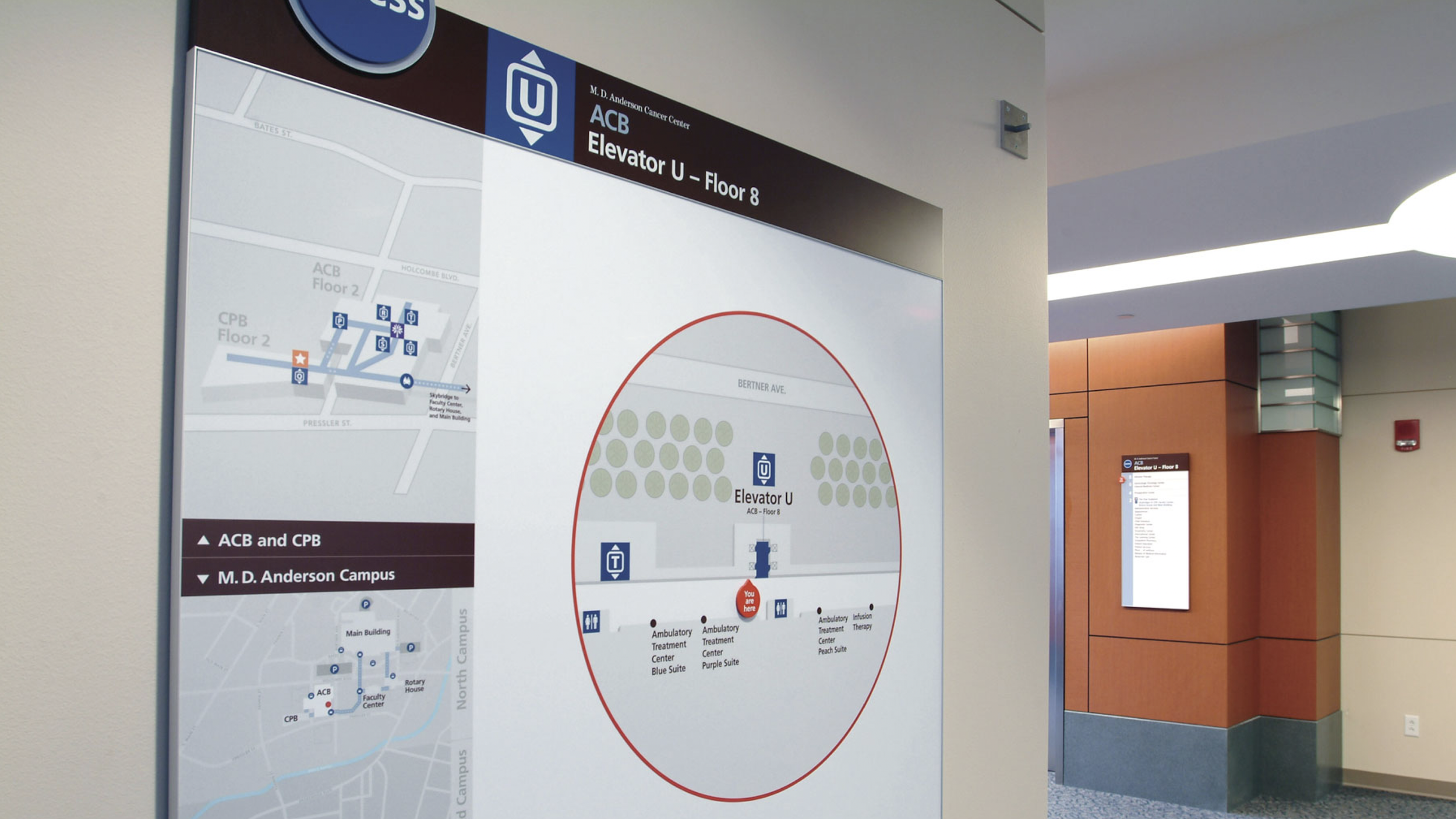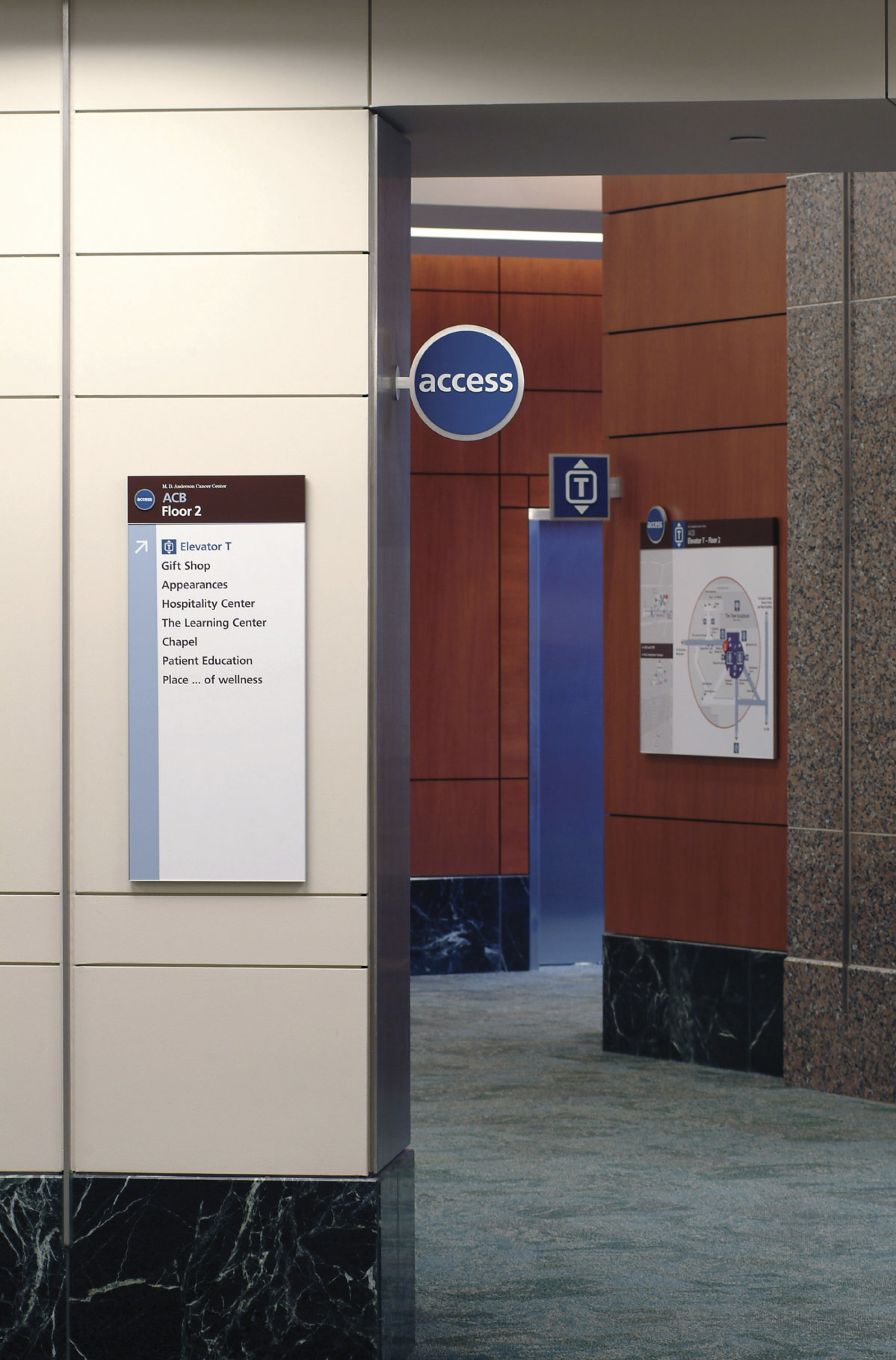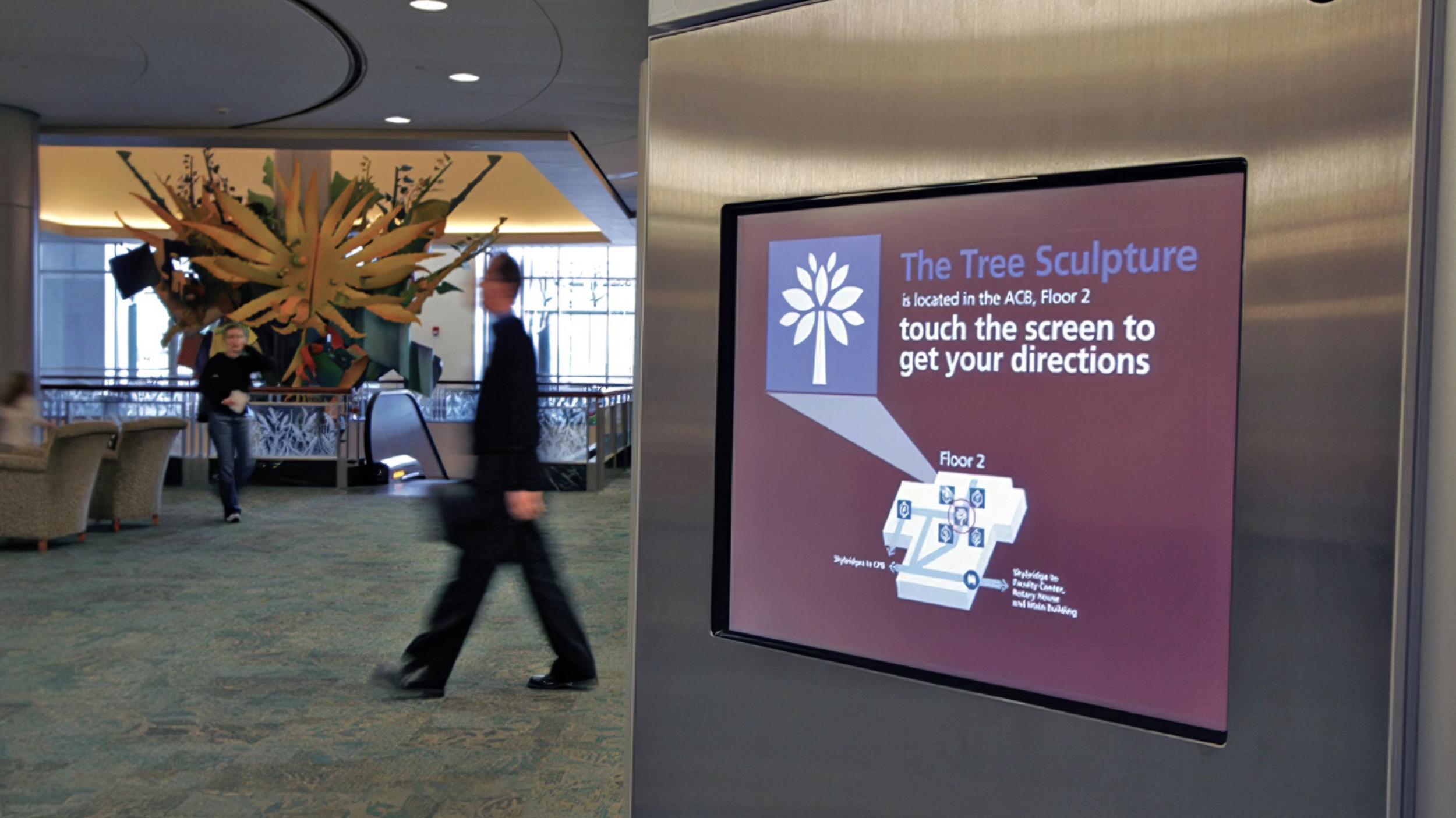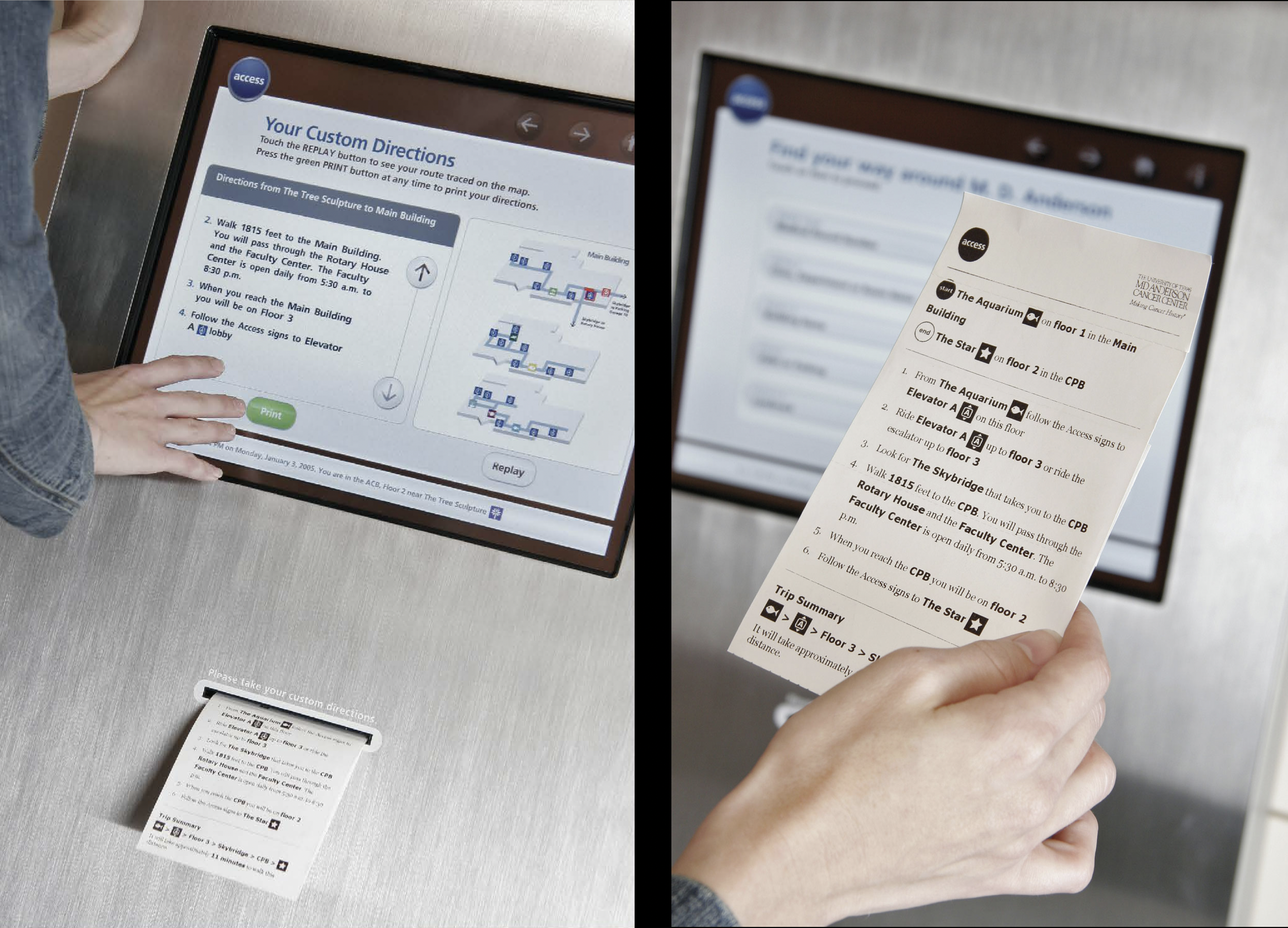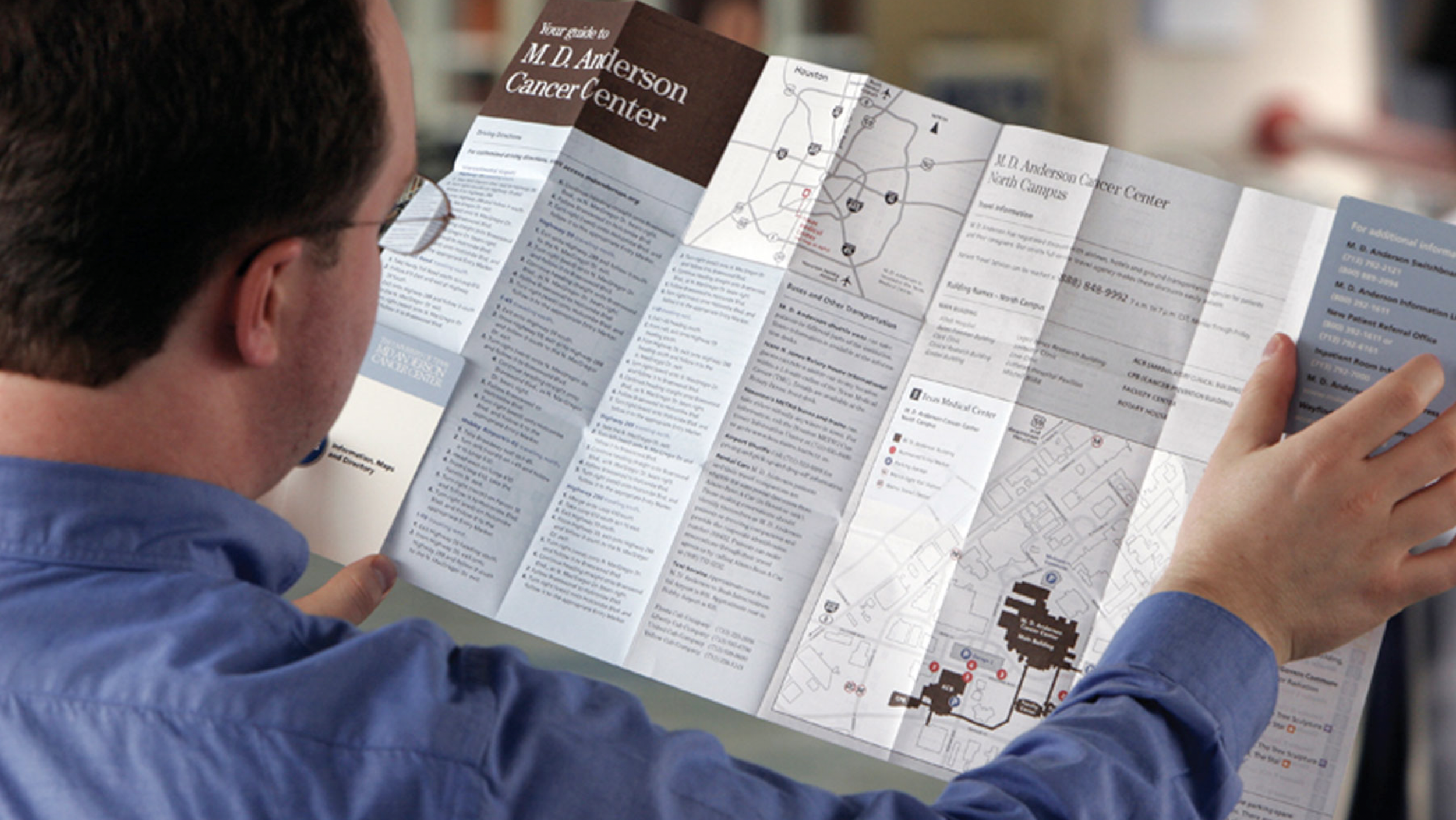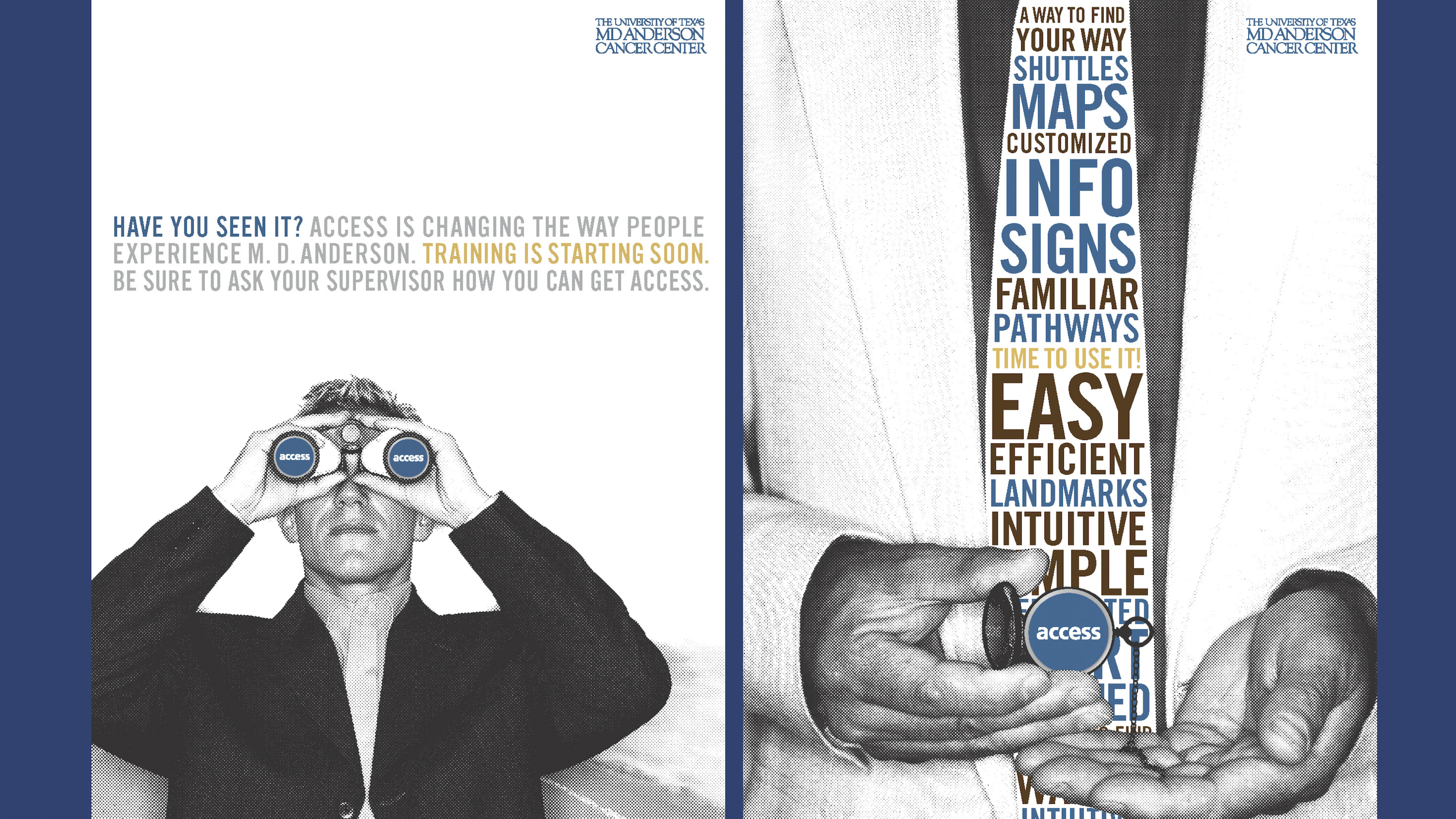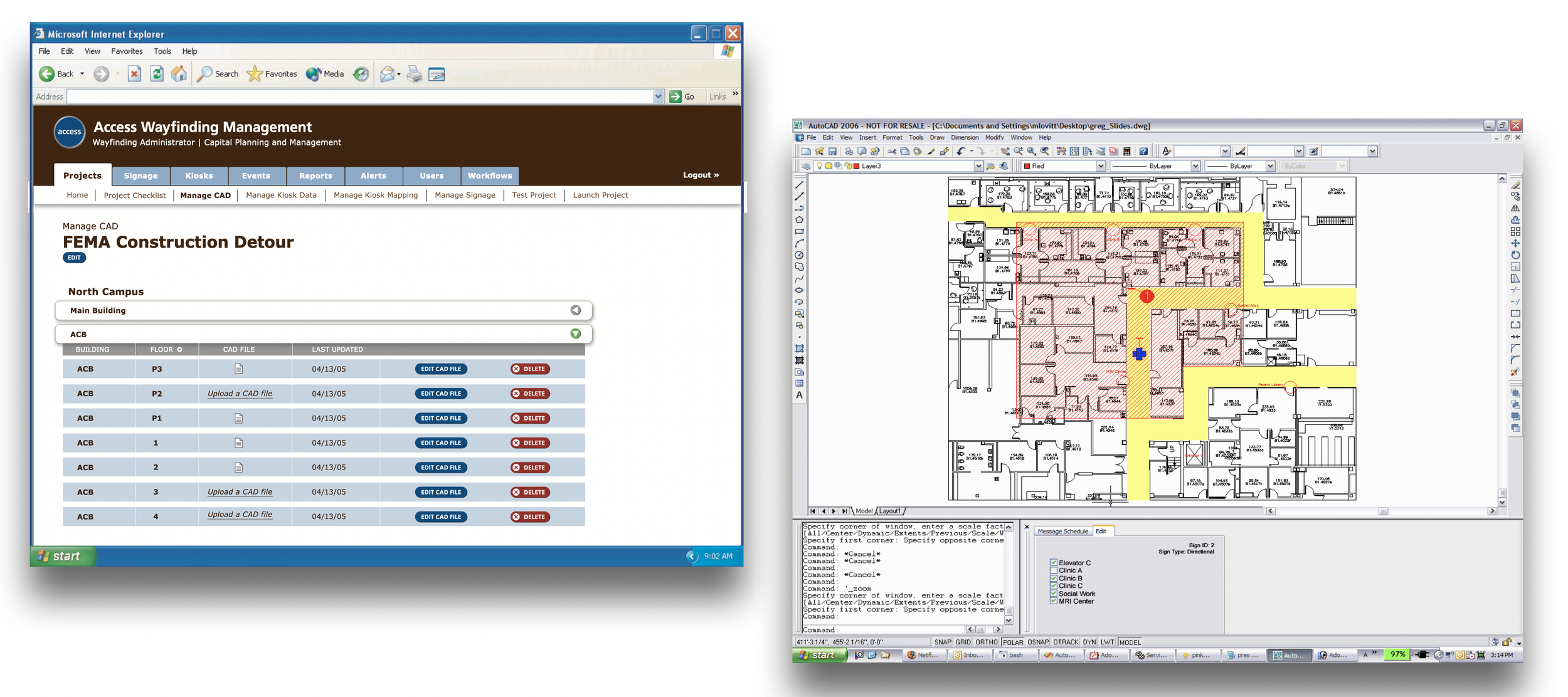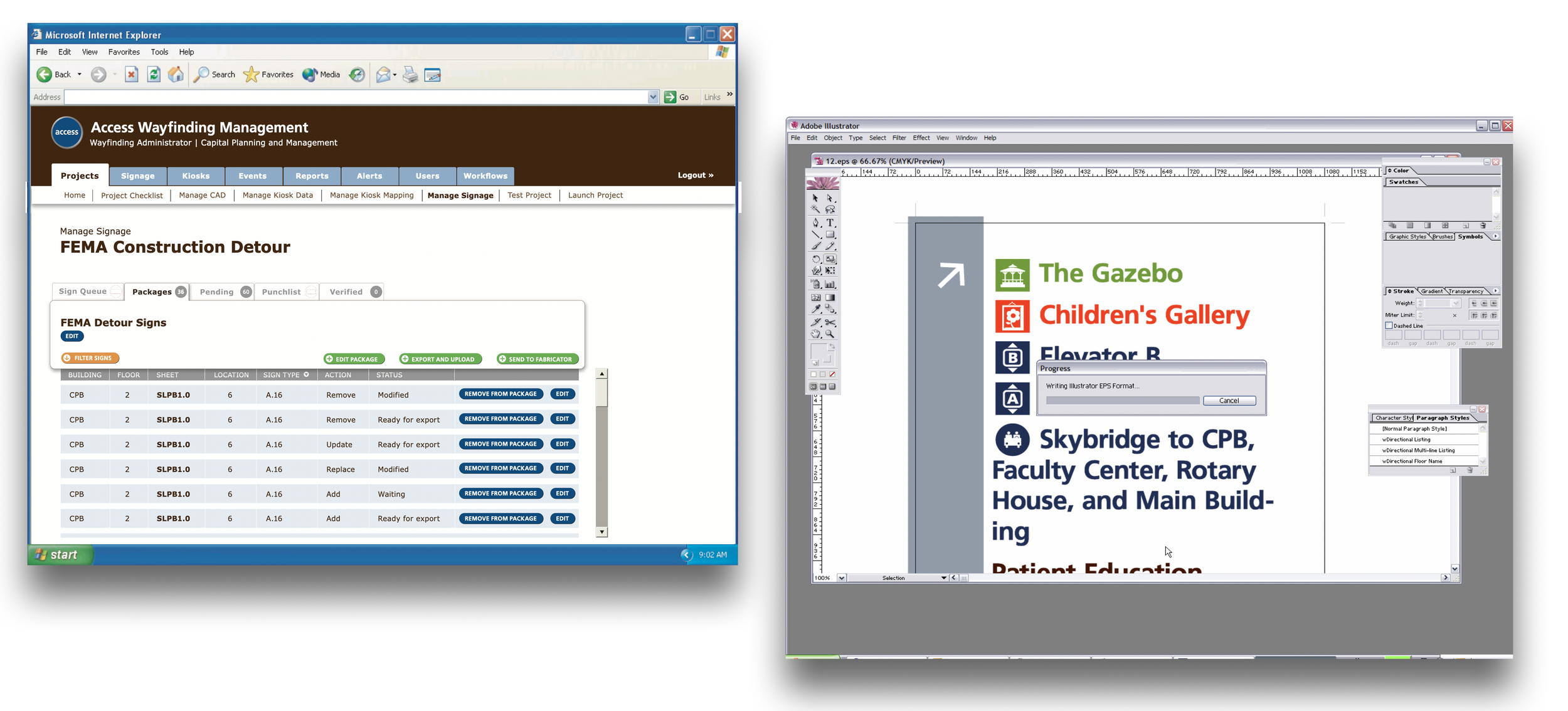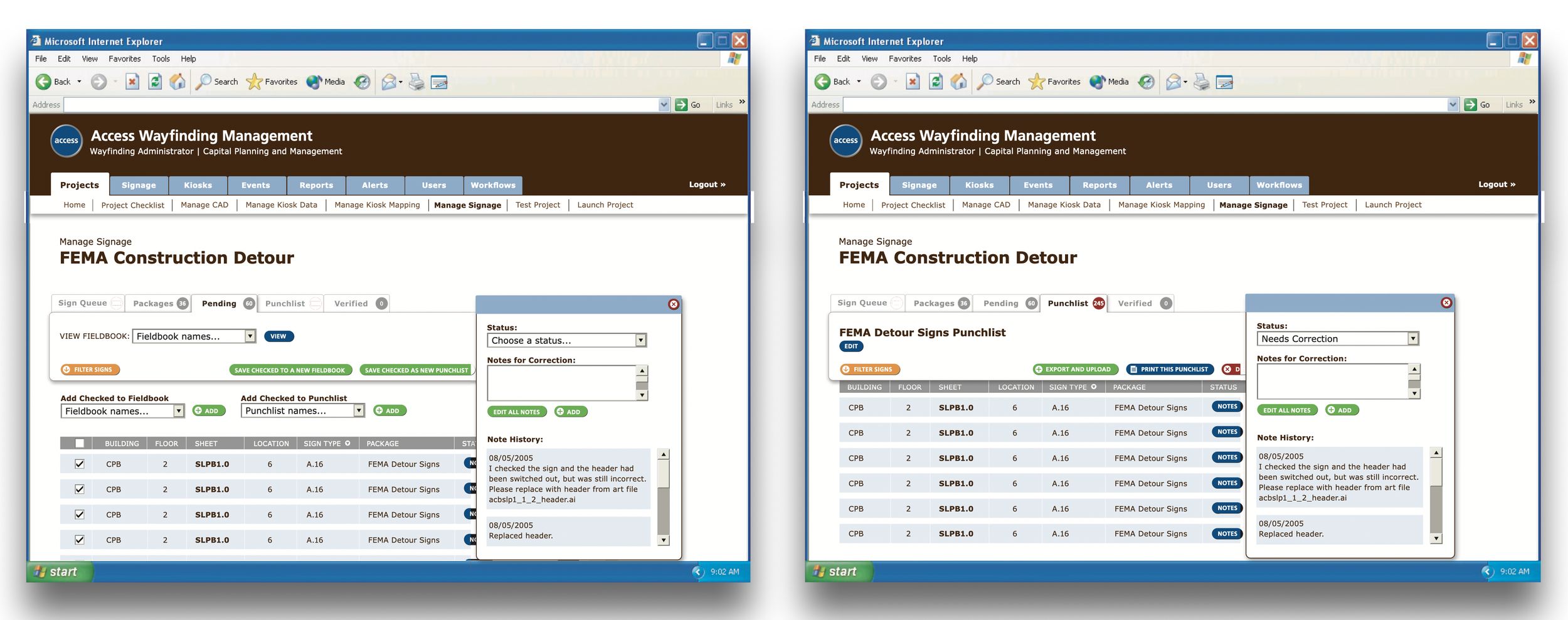Featured Project
MD Anderson Cancer Center Access Wayfinding System

A caregiver drives her husband to Houston for an appointment at MD Anderson. He holds crumpled, handwritten instructions. The phone operator had given them a lot of directions to remember to get to the Head and Neck Clinic. “After you enter the building, go through those doors and go right past the Information Desk. Go left again, go down the hallway, then right through the Rose Zone.” By the third turn, they’ve forgotten the details and stopped listening. They parked in Garage 7, unsure if that was the right one.
In 2003, MD Anderson occupied four million square feet in the Texas Medical Center. Patients got lost. The hospital hired fd2s from Austin to fix it. The old system: seventeen things to remember to find your way around. The new system: five. “Your appointment is near Elevator C, Level 4. Follow the blue dots and signs to the Head and Neck Clinic.”
fd2s installed Access in January 2005. Large numbered signs at entrances. Blue dots at eye level. Carpet stripes on floors. Maps and signs on the walls. Touchscreen kiosks to help along the way.
Twenty years later, Access has served 34 million patients and caregivers.
The system still works.
View the case study »
Outside, large numbered entry signs made it easy to find parking garages and building entrances.
Subtle carpet stripes also marked a path on the floor.
Area maps oriented visitors inside and outside the building.
Access sign types in a hallway
Sign details included noticeable orientation symbols and landmarks.
Touchscreen kiosks supported visitors along their journey.
Visitors could print out directions from the touchscreen kiosks.
Visitors received a pocket map in the mail before departing, and could get one on campus.
Informative posters previewed the new wayfinding system to staff and visitors.
A custom-built enterprise software system helped the design team keep Access updated.
The design team could use the tool to export sign message schedules to Adobe Illustrator.
The maintenance tool also generated punch lists to ensure signs were correct and properly installed.

